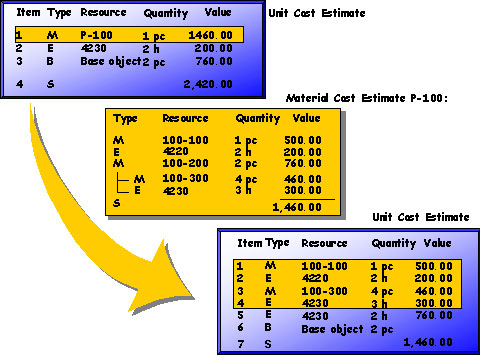How to estimate the cost of Material
Material Pricing
The price of the materials is calculated in two different methods:-
Lump Sum: It is a process to supply all the Materials in a group. As for instance a steel supplier may propose to provide all of the structural steel, steel Joists and roof deck for an approved price.
Unit Price: It is a system provided by the supplier to supply the materials at a price per unit.
A ready mix concrete supplier may recommend to deliver 3000 psi concrete to the project for a price of RM 110 per cubic yard.
Quantity TakeOff
It is a procedure to find out the required construction quantities. It can be segregated into:-
Quantity TakeOff Procedures
Classification of work item- for instance : Brick wall section or concrete footing.
Estimation of quantity varying from linear, area, volume and unit.
After calculating the material take-off, estimator can gather brief knowledge on the actual field procedure. Concrete take-off will commence from volume for footings, grade beams, slabs and slabs for ground floor etc.
Generally quantity quantity take-off is performed by the application of forms. In order to regulate the worksheets, provide accurately allocated areas in which proper information is to be submitted facilitating follow-up for smooth evaluation.
Pricing Materials
It is a system for allocating a RM value for a work item following a projected specification and prearranged A process quantity needed.
After completion of quantifying of materials, the calculation of cost of materials should be started. The pricing of each work item should consist of the individual subcomponents:- Procurement of permanent and temporary materials Labor needed for setting up the materials Equipment necessary for shifting and installing materials Other consumables, eg. Fuel and tools
Material costs
In general, the amount of purchase = the unit price, which is recognized as quantity discount.
Freight cost should be taken into consideration and included in the direct cost of the materials. This is very important if the site location is very distant from nearby suppliers.
Other concerns for material procurement:
Material Pricing basis
Resources of pricing information:
Published resources - Building Cost Indices Company Cost records - an in-house record of accurate documenting and compiling company cost from earlier jobs Vendor catalogues and quotations - prices are acquired directly from vendors from catalogues or indirect inquiries
While Upon assembling prices from vendor, the following points must be taken into consideration:
Payment requirements - cash, credit, credit term Delivery charges Lead time, product availability Price guarantee Quantity discount information Price rise clause

|